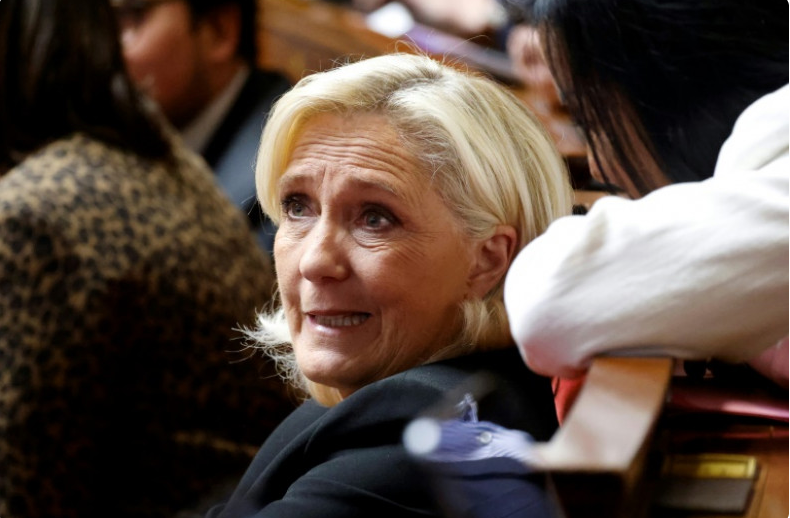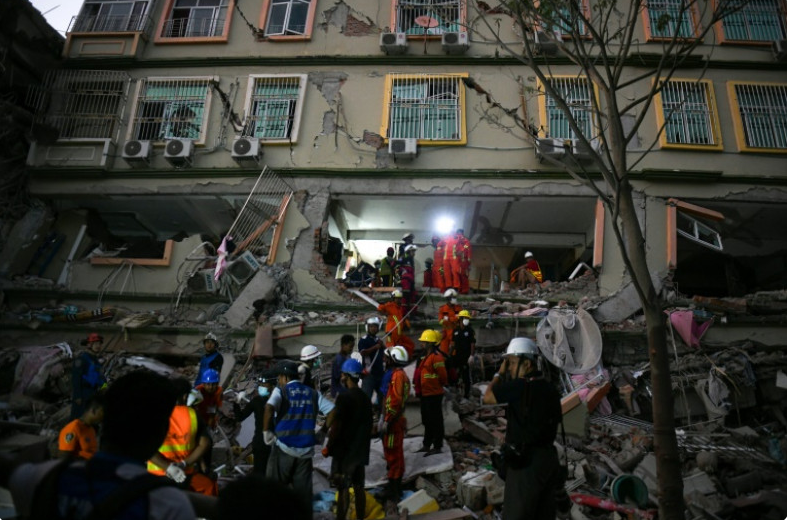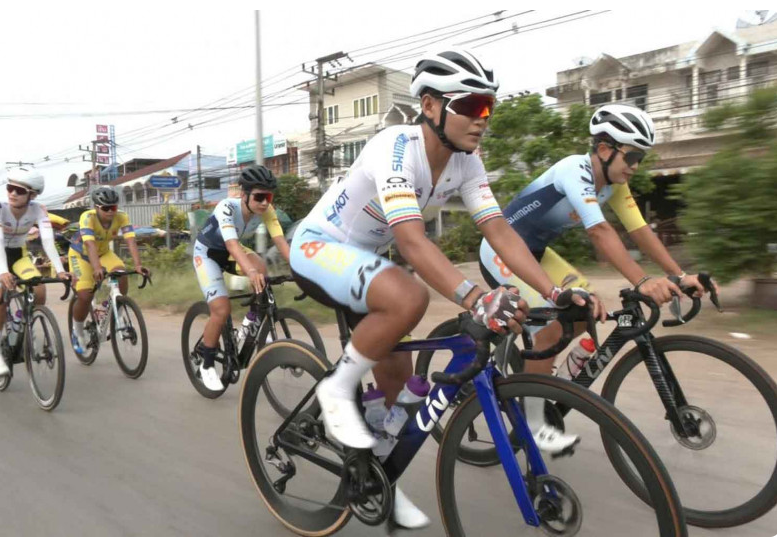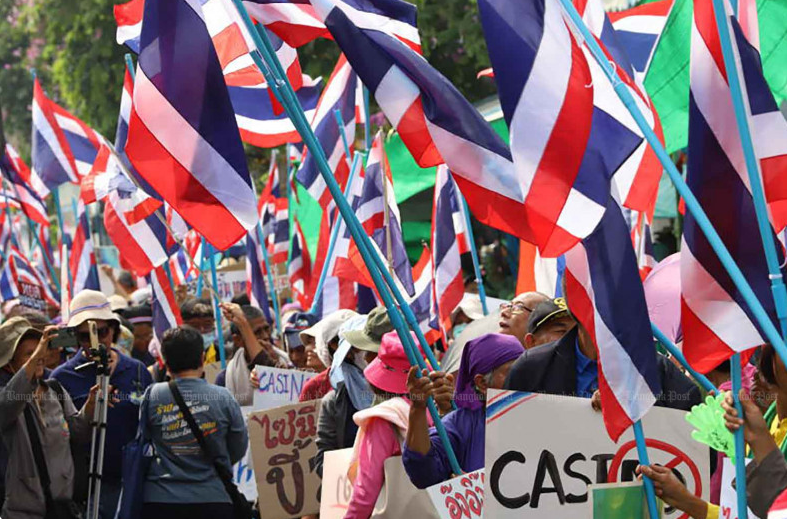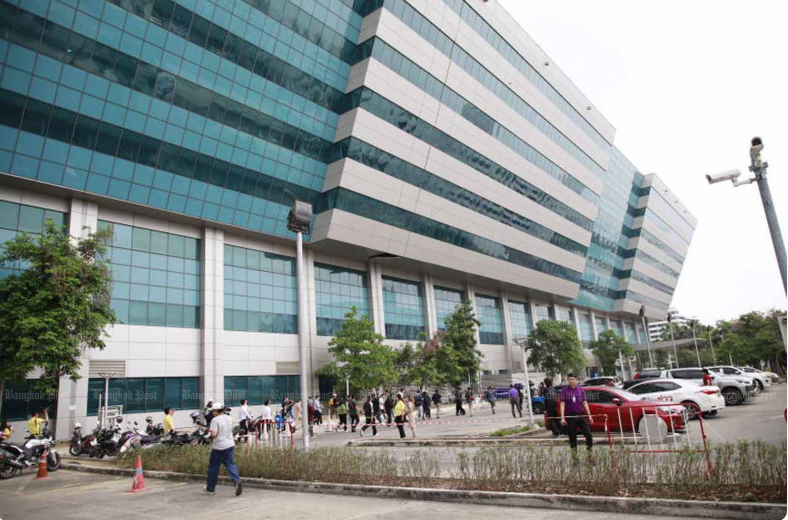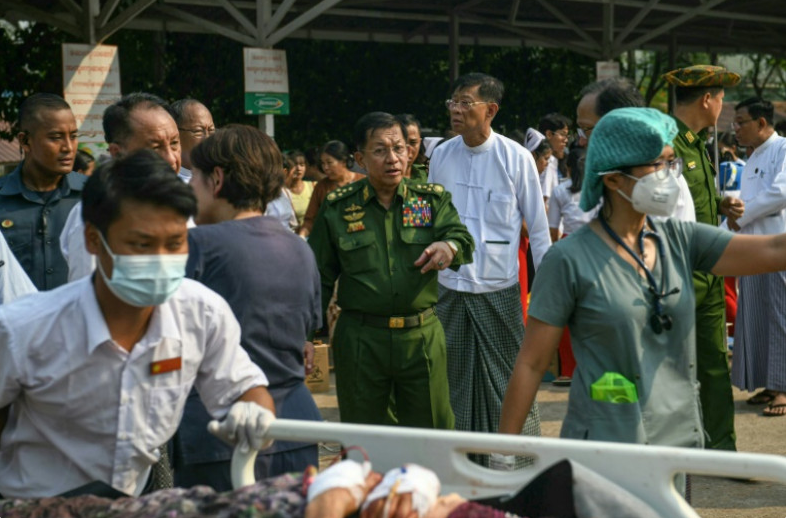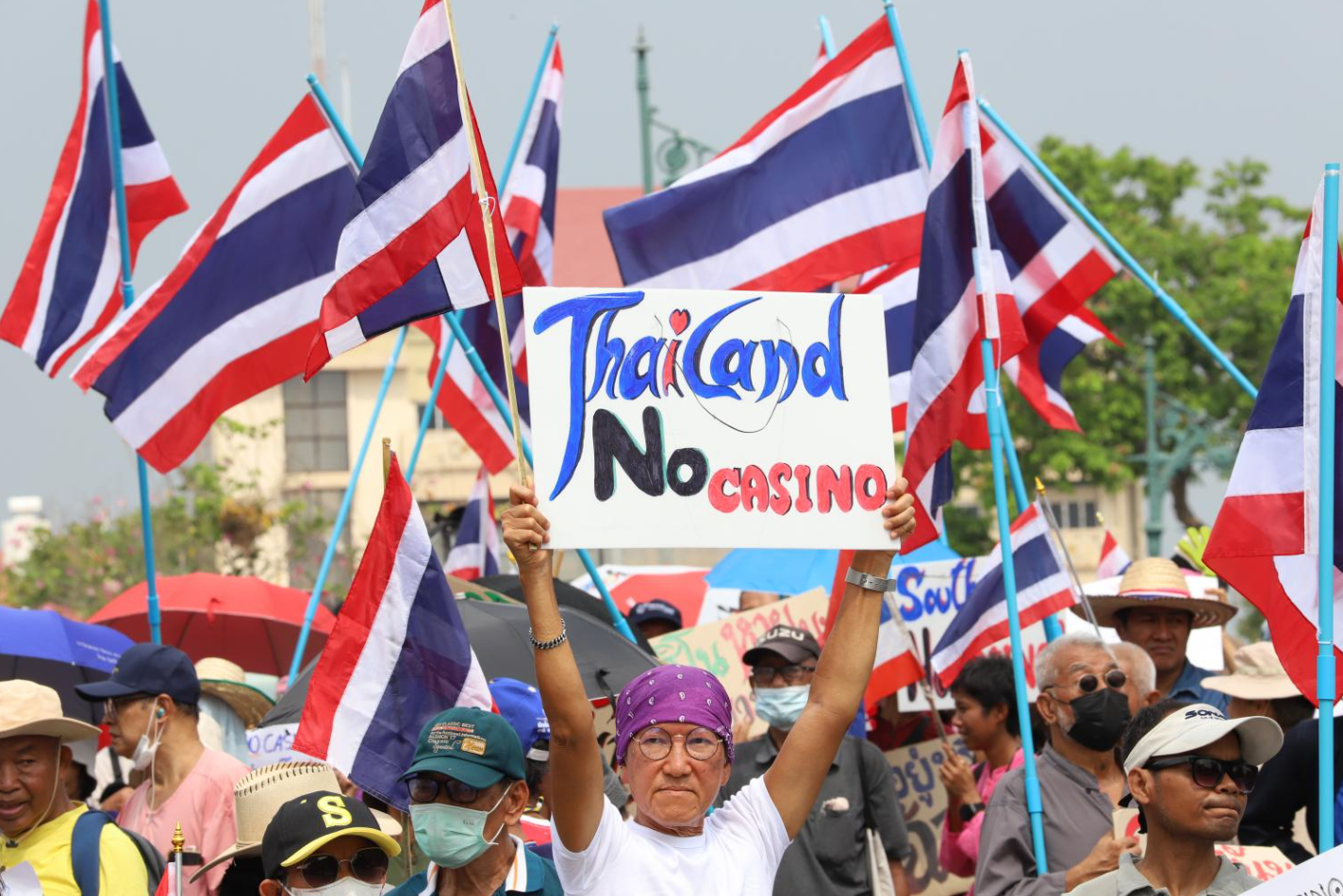Opponents of casino bill amplify protests
The cabinet’s decision to approve the controversial casino and entertainment complex bill on Thursday was met with vows of increased protests from the critics.
A group of around 80 protesters gathered in front of Government House on Thursday, as the cabinet met to discuss the bill. They were affiliated with a number of groups opposed to the bill, including the Network of Students and People for the Reform of Thailand, the Centre of People for the Protection of the Monarchy and the Dharma Army.
Pichit Chaimongkol, one of the protest leaders, said the cabinet is essentially pressuring the public to accept the bill even though opposition to the move is becoming heated.
Mr Pichit then asked why the cabinet was so keen to pass the Casino and Entertainment Complex Bill when it was not even included in Prime Minister Paetongtarn Shinawatra’s policy statement to parliament.
“The promotion of vices is the same as luring people down the wrong path [in life], which is the opposite [of what the government promised], improving the quality of life and the welfare of the people,” he said.
Another People’s Party (PP) MP, Parit Wacharasindhu, said the government’s urgency to push the legislation through despite warnings from its critics indicated it may be hiding a “hidden agenda”.
“The casino-entertainment complex project was not among the pledges made by Pheu Thai in the 2023 election, and now the government is willing to push it regardless of the negative consequences,” he said, adding that there weren’t data and studies to support the bill.
He also said the government has yet to sufficiently convince the public how the bill will benefit the country, nor has it promised the public the bill wouldn’t create other problems like corruption.
Chittawan Chanagul, an academic from Kasetsart University’s faculty of economics, also criticized the cabinet’s approval of the bill while saying the government has ignored criticisms from the public over the potential negative impacts of casinos.
On Thursday, the cabinet approved a bill to set up a Casino and Entertainment Complex, as part of the government’s drive to bring in more tourists and establish a regulated gaming industry.
To access the casino, Thai punters must pay an entry fee of 5,000 baht and demonstrate evidence that they are in possession of at least 50 million baht in bank deposits.
Deputy Finance Minister Julapun Amornvivat had earlier said that the asset requirement for Thai nationals would likely be dropped, because it would exclude too many people.
He said the officials had made the decision to submit the draft as is, and would negotiate potential amendments later.
The details of the bill are not yet set in stone, as parliament has the final say, the prime minister, Paetongtarn Shinawatra, said.
Now, the bill goes to the House of Representatives. If passed, it will also require the Senate’s and His Majesty the King’s endorsement before it comes into force.
Jirayu Houngsub, a government spokesman, said that more public hearings would be held in a local context in areas where casinos are to be established. He also promised the people that any harm caused by the casinos would be compensated.
Casino operators will not be allowed to connect gambling at casinos to any computer system and stream gaming activities in their venues. They would also be covered by the anti-money laundering law, he said.
The government plans on luring in over $2-$3 dollars, or 100 billion baht in casino and entertainment complex investments and an annual increase of 5-10% in foreign arrivals.
Some 71,300 people took part in a public hearing conducted online between Feb 28 and March 14, he added, saying 80% of them backed the bill.
But a recent opinion poll has shown that most people are concerned because of the negative impacts gambling have.
The party added that legalising gambling could backfire on the tourism sector if China indeed ends up discouraging its citizens from visiting the kingdom.

